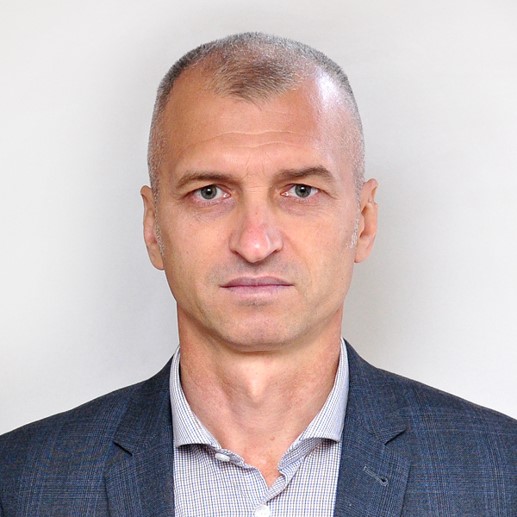CONSIDERATIONS ON THE POLICIES OF THE RUSSIAN FEDERATION TO ACHIEVE NATIONAL INTERESTS IN ITS NEAR ABROAD
DOI:
https://doi.org/10.53477/2668-5094-21-22Keywords:
policies, national interests, “hard power”, “soft power”, economic sanctions, military operations.Abstract
The policies of the Russian Federation in its near abroad have been constantly changing. Taking into account this consideration, it is important to know what were the determining factors that influenced the policy orientation of the Russian Federation in the pursuit of national interests in those areas. In this context, are analyzed the policies through which the Russian Federation projects national interests in its near abroad such as “hard power”, which include military operations (the involvement of Russian troops as “peacekeeping forces” in the Republic of Moldova, Georgia and Tajikistan; stationing of large units and units on the territory of the former union republics; economic sanctions, etc.). In tandem with “hard power” policies, the Russian Federation also uses “soft power” policies (promoting the Russian language and culture, strengthening the presence of the Russian Federation in the information space, supporting the Russian diaspora).
References
BÎZU C., MATEI G., Conflictele înghețate: instrument de putere al
Kremlinului în regiunea extinsă a Mării Neagre, INFOSFERA, Anul XII nr.
/2020 Revistă de studii de securitate şi informaţii pentru apărare.
Ce animă conflictul din Nagorno-Karabah?, https://www.dw.com/ro/ceanim%
C4%83-conflictul-din-nagorno-karabah/a-55092763.
Ce prevede așa-numitul plan Kozak. Mai mulţi politicieni l-au considerat
catastrofal pentru Moldova, https://www.publika.md/ce-prevede-asaStrategies
XXI – ACNDC
Bucharest, June 25, 2021
numitul-plan-kozak-mai-multi-politicieni-l-au-considerat-catastrofal-pentrumoldova_
html.
DONOVAN G.T., Jr., Russian Operational Art in the Russo-Georgian War
Of 2008, USAWC CLASS of 2009.
Energy as a tool of foreign policy of authoritarian states, in particular Russia,
Policy Department for External Relations, Directorate General for External
Policies of the Union, PE 603.868 - April 2018, https://www.europarl.
europa.eu/RegData/etudes/STUD/2018/603868/EXPO_STU(2018)603868_
EN.pdf.
Evoluţia politicii externe a Republicii Moldova (1998-2008), Ch.: Cartdidact,
, http://www.ape.md/wp-content/uploads/public/publications/987156_
md_studiu___politi.pdf;
GHEORGHE A.E., Politica externă a Rusiei față de republicile din asia
centrală în timpul președinției lui Vladimir Putin, https://heinonline.org/
HOL/LandingPage?handle=hein.journals/rescito3&div=5&id=&page=.
GREENE S., Engaging History: The Problems and Politics of Memory in
Russia and the Post-Soviet Space, Carnegie Moscow Center, Moscow, 2010.
(Working Paper; iss. 2).
GRIGAS A., Legacies, Coercion and Soft Power: Russian Influence in the
Baltic States, https://www.chathamhouse.org/sites/default/files/public/
Research/Russia%20and%20Eurasia/0812bp_grigas.pdf.
KIVIRÄHK J., MALIUKEVIČIUS N., The “humanitarian dimension” of
Russian Foreign Policy Toward Georgia, Moldova, Ukraine and the Baltic
States, Center for East European Policy Studies, The 2nd, supplementary
edition, Riga, 2010;
Putin, protecționismul și standardele duble, https://sic.md/de-cind-a-inceputsa-
i-placa-lui-putin-comertul-liber/.
ROTARU V., Adapting the military strategy. Russian hard power presence in
the former soviet space after 2008, https://www.researchgate.net/
publication/311397039.
Rusia a anunţat retragerea trupelor - ce înseamnă asta pentru Ucraina?,
https://www.dw.com/ro/rusia-a-anun%C5%A3at-retragerea-trupelor-ce-
%C3%AEnseamn%C4%83-asta-pentru-ucraina/a-57322586.
Russian wine move draws protests, http://news.bbc.co.uk/2/hi/
europe/4860454.stm.
80,000 Russian Troops Remain at Ukraine Border as U.S. and NATO Hold
Exercises, https://www.nytimes.com/2021/05/05/us/politics/biden-putinrussia-
ukraine.html.
SHEVEL O., Russia and the Near Abroad. https://www.researchgate.net/
publication/274385776.


